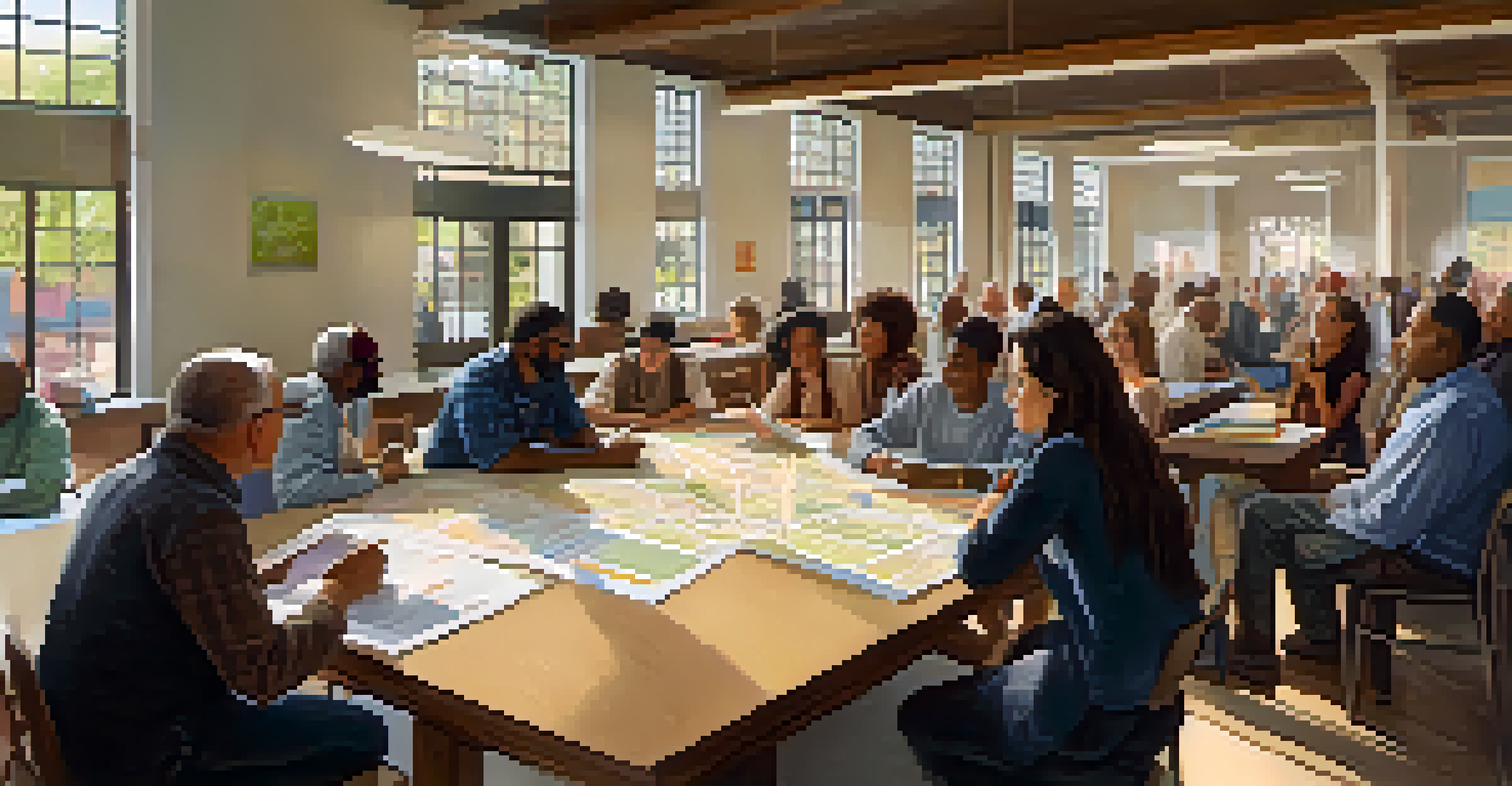The Role of Zoning Laws in Los Angeles Real Estate Growth

Understanding Zoning Laws in Los Angeles
Zoning laws are regulations that dictate how land can be used in a given area. In Los Angeles, these laws are designed to manage urban development and ensure that the community's needs are met. They classify areas into different zones, such as residential, commercial, and industrial, which helps maintain order and prevent conflicts between land uses.
Zoning is a way of balancing the need for development with the need to protect our communities and our environment.
For example, a residential zone may restrict businesses from operating to protect the neighborhood's character. This clear delineation supports property values and community identity. Understanding these classifications is crucial for anyone looking to invest in or develop real estate in the city.
As Los Angeles continues to grow, these zoning laws can either facilitate or hinder real estate development. They play a pivotal role in determining what can be built where, influencing everything from housing availability to commercial space.
The Historical Context of Zoning in LA
Zoning laws in Los Angeles have evolved significantly since the early 20th century. Initially implemented to address public health concerns and urban overcrowding, these regulations have grown to encompass a wide range of land-use issues. Their historical roots reflect the city's growth patterns and the need to adapt to changing demographics.

For instance, the 1920s saw the introduction of zoning as a way to segregate industrial areas from residential neighborhoods. This separation was intended to protect residents from pollution and noise, which is still a concern today. Over time, the laws have been updated to reflect new priorities, like environmental sustainability and affordable housing.
Zoning Shapes LA's Real Estate Market
Zoning laws directly influence property values and development opportunities across Los Angeles.
Understanding this historical context is essential for grasping how current zoning laws influence real estate development. It sheds light on the ongoing debates about land use and the challenges of accommodating a growing population while preserving quality of life.
Current Trends in Los Angeles Zoning
Today, Los Angeles is witnessing several trends in zoning that aim to address contemporary challenges. One significant trend is the push for mixed-use developments, where residential, commercial, and recreational spaces coexist. This approach promotes walkability and reduces reliance on cars, aligning with the city's sustainability goals.
Land-use planning is about managing change — you can’t stop it, but you can guide it.
Another trend is the increasing focus on affordable housing. Zoning laws are being adjusted to allow for higher density developments, which can help meet the demand for more affordable units. This shift reflects a growing recognition of the housing crisis that many residents face.
These current trends highlight how zoning laws are adapting to meet the needs of a dynamic city. As various stakeholders engage in discussions about future developments, understanding these trends is crucial for anyone involved in the real estate market.
Zoning and Its Impact on Property Values
Zoning laws have a direct impact on property values in Los Angeles. When an area is zoned for high-density residential use, for example, property values tend to rise as developers seek to build more units. This can lead to increased competition and higher prices, especially in desirable neighborhoods.
Conversely, areas with restrictive zoning may see stagnation in property values. If a neighborhood is limited to single-family homes, it may not attract as much investment as areas with mixed-use zoning. Investors and homeowners alike must be aware of these dynamics when considering real estate opportunities.
Community Input Drives Zoning Changes
Active community involvement ensures that zoning decisions reflect the needs and values of local residents.
In essence, zoning shapes the landscape of Los Angeles real estate, influencing not just what can be built, but also how much properties are worth. Understanding these laws can empower buyers and sellers to make informed decisions.
Community Involvement in Zoning Decisions
Community involvement plays a vital role in shaping zoning laws in Los Angeles. Residents often have the opportunity to voice their opinions during public hearings and planning meetings. This engagement ensures that the needs and desires of the community are considered in the decision-making process.
For example, local organizations may advocate for changes in zoning to promote affordable housing or protect green spaces. Their efforts can lead to significant alterations in zoning regulations that reflect the community's values. This participatory approach helps maintain a balance between development and community interests.
Ultimately, community involvement fosters transparency and accountability in zoning decisions. It empowers residents to take an active role in shaping their neighborhoods and ensures that developments align with the broader community vision.
Challenges of Zoning Laws in Los Angeles
Despite their importance, zoning laws in Los Angeles face several challenges. One major issue is the balance between development and preservation. While new projects can stimulate growth, they may also threaten the character of established neighborhoods, leading to community pushback.
Furthermore, navigating the complex zoning regulations can be daunting for developers. The approval process can be lengthy and filled with red tape, which may discourage investment in certain areas. These challenges highlight the need for reform to streamline the process while still protecting community interests.
Current Trends Focus on Sustainability
Mixed-use developments and affordable housing initiatives are emerging trends in Los Angeles zoning practices.
Addressing these challenges is crucial for the future of Los Angeles. Striking the right balance between growth and preservation will require collaboration among city officials, developers, and community members.
The Future of Zoning and Real Estate in LA
Looking ahead, the future of zoning laws in Los Angeles is likely to evolve in response to ongoing challenges and opportunities. As the city grapples with issues like climate change, housing shortages, and transportation, zoning will need to adapt accordingly. Innovative approaches, such as eco-friendly zoning practices, may become more prevalent.
Moreover, with technology advancing rapidly, there is potential for digital tools to streamline zoning processes. Online platforms could facilitate community engagement and make it easier for developers to navigate regulations. This could lead to more efficient decision-making and better alignment with community goals.

Ultimately, the future of zoning in Los Angeles will depend on collaboration and flexibility. By embracing change and prioritizing community needs, zoning laws can continue to support sustainable growth and vibrant neighborhoods.